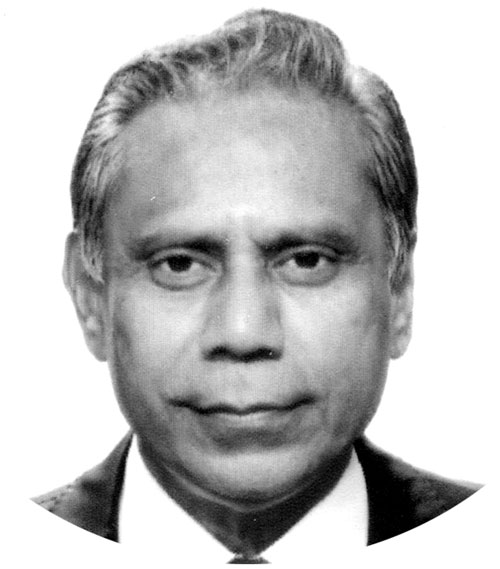Taliban’s caretaker cabinet
A day after their victory over opposition forces in the last holdout province of Panjshir, com pleting their takeover of Afghanistan three weeks after capturing Kabul and four days prior to the 20th anniversary of the 9/11 attacks, the Taliban announced a caretaker government in Afghanistan.
According to the chief spokesman Zabihullah Mujahid, the “caretaker” Islamic government will be headed by Mullah Hasan Akhund, a close associate of the Islamist movement’s founder Mullah Omar (late).
The current option has been to repose confidence in the old guard, although they are in an acting capacity and that the heads of various other ministries will be appointed soon.
The head of the government, Mullah Hasan Akhund, in his 60s, hails from the southern Afghan province of Kandahar, the birthplace of the Taliban.
Mullah Akhund has Pashtun lineage from Ahmad Shah Durrani – the founder of modern Afghanistan (circa 1700s).
He led the group’s leadership council, which directed insurgent attacks against the United States and allied forces during nearly 20 years of war.
Mullah Akhund is on a UN sanctions list and is the longtime head of the Taliban’s powerful decision-making body Rehbar-i-Shura, or leadership council. He was previously the foreign minister and then deputy prime minister during the Taliban’s last stint in power from 1996-2001.
Mullah Abdul Ghani Baradar, head of the group’s political office, will serve as the deputy prime minister in the caretaker government. Abdul Ghani Baradar was raised in Kandahar. He was believed to have fought side-by-side with Mullah Omar.
After the Taliban government was toppled in 2001 by US-led forces, Baradar is believed to have been among a small group of Taliban members who approached interim leader Hamid Karzai with a potential deal that would have seen the group recognize the new administration.
Arrested in Pakistan in 2010, Baradar was kept in custody until pressure from the United States saw him freed in 2018 and relocated to Qatar.
There he was appointed head of the Taliban’s political office and oversaw the signing of the troop withdrawal agreement with the US.
Sirajuddin Haqqani will be interior minister; Amir Khan Muttaqi will be the foreign minister; and Mohammad Yaqoob, son of Mullah Omar, will be the acting defense minister.
Ahmadullah Wasiq will assume the responsibilities of the acting information minister. Other portfolios include Mullah Rahmatullah Najib as the acting Deputy Director of National Directorate of Security, Mullah Hedayatullah Badri as the acting Minister of Finance, Khalil Ur Rehman Haqqani as acting Minister of Refugees, Mawlawi Taj Mir Jawad as acting Deputy Intelligence Chief, Sheikh Mawlawi Noorullah Munir as acting Minister of Education and Mullah Abdul Haq Wasiq as acting Head of NDS.
Interestingly, Sirajuddin Haqqani is the head of the Haqqani network, designated by the United States as a global terrorist organization.
Washington has offered a $10 million reward for information that leads to Haqqani’s arrest on accusations of directing deadly attacks against American and allied forces in Afghanistan.
The US denounces the Haqqani network as the “most lethal and sophisticated insurgent group.”
Perhaps picking a leaf off the Iranian dispensation of government, Taliban Chief Hibatullah Akhundzada will be the overall “Amir” (supreme leader) of the “Islamic Emirate of Afghanistan.”
The Taliban have assured Afghans and foreign countries that they will install an “inclusive government” in the country and will not bring back their harsh Islamist rule of the 1990s, marked by a brutal justice system and the barring of women and girls from public life.
So far, all the people appointed to the caretaker Cabinet are Taliban members, which has given rise to speculations.
Reportedly, the US State Department is “assessing” the announcement, noting that while the list includes individuals who are either members of the Taliban or their close associates, no woman has been named to the caretaker government.
A spokesperson for the State Department states that it will continue to hold the Taliban to their commitments to allow safe passage for foreign nationals and Afghans with travel documents, including permitting flights currently ready to fly out of Afghanistan to agreed-upon onward destinations.
The US has also reiterated its clear expectation that the Taliban ensure that Afghan soil is not used to threaten any other countries and allow humanitarian access in support of the Afghan people.
So far no country has recognized the new government but close huddles and consultations with Afghanistan’s neighbours, mainly Pakistan are taking place.
It is worthwhile mentioning White House press secretary Jen Psaki’s comment that there is no rush to recognition.
It will be dependent on what steps the Taliban takes to allow for American citizens and citizens of other countries to depart, whether they allow individuals who want to leave the country to leave… how they treat women and girls around the country.
The United Nations, while reacting to the Taliban’s announcement, stated that only a negotiated and inclusive settlement will bring sustainable peace to Afghanistan.
It is no coincidence that at least 10 people in the 33-member Taliban Cabinet announced on 07 September, were part of the group’s team that negotiated the February 2020 peace agreement with the US, paving the way for all foreign forces to withdraw from nearly 20 years of war in Afghanistan.
Meanwhile, US Secretary of State Antony Blinken has reminded the Taliban that the international community is holding the group to its commitment to let anyone with valid travel papers leave Afghanistan if they choose. We wish the people of Afghanistan well and pray that peace is restored at an early date.
—The writer is retired PAF Group Captain and a TV talk show host.









